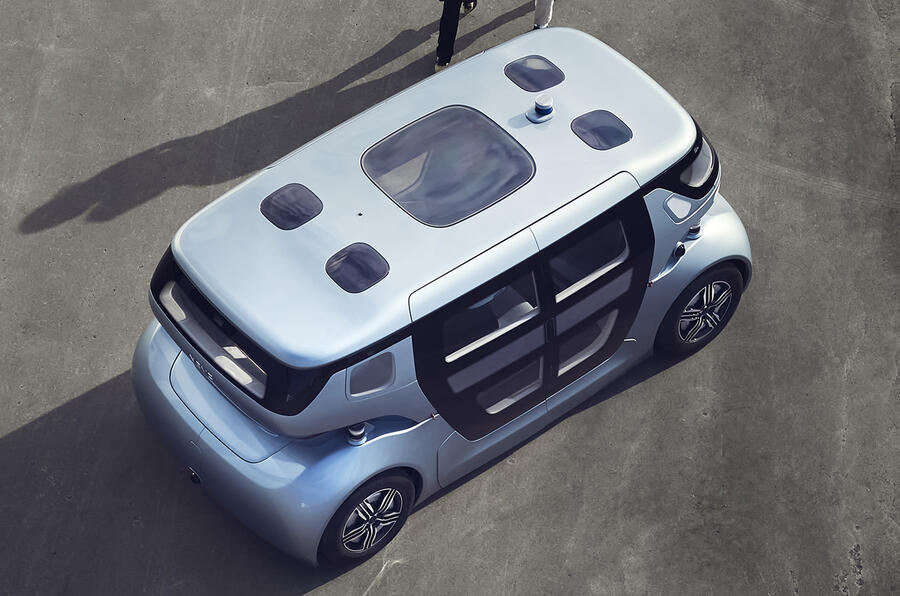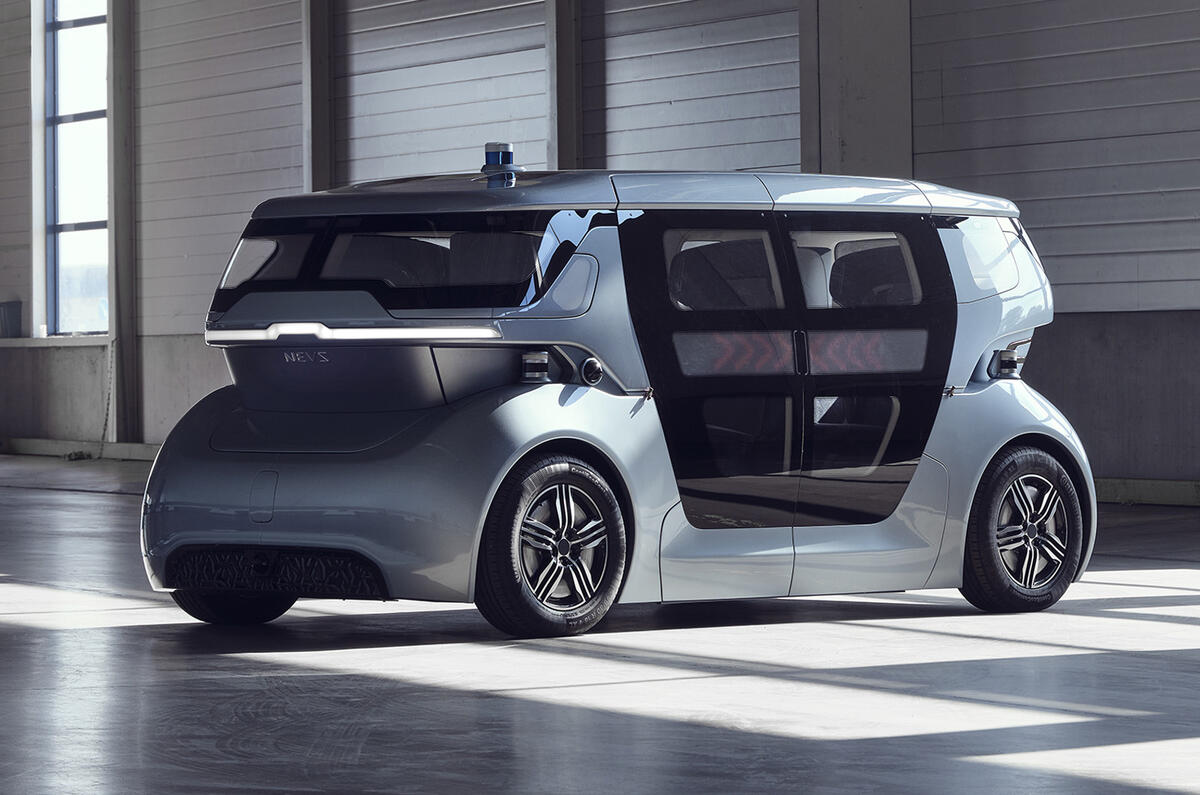Swedish firm NEVS is developing an autonomous ride-sharing network aimed at providing similar levels of privacy and security to car ownership.
The company’s ‘PONS’ programme is described as a ‘mobility ecosystem’, which has been developed in response to a growing demand to reduce emissions in cities around the world. According to NEVS, the 1.3 billion cars in operation globally are used just 5% of the time.
The system revolves around a self-developed autonomous shuttle called Sango. Designed to offer flexibility for its users, the self-driving electric vehicle has a low floor, sliding doors on both sides and a bright, spacious cabin with six movable seats.
Although the Sango is designed for ride sharing, rather than personal ownership, it has been developed to offer some of the benefits of vehicle ownership. The company’s vice president of mobility solutions, Anna Haupt, said: “We started by looking at why urban citizens have such strong desire to use their own cars rather than public transport, even if it means sitting in traffic jams for hours each day. The reason is privacy: in your own car, you feel safe, secure, relaxed and free.”
NEVS: Reborn Saab maker teams up with hypercar firm Koenigsegg
The movable seats allow the interior to be configured in three different ‘settings’: private, social and family. Privacy walls also feature and can be raised to divide the cabin into four individual compartments, or lowered to allow four people to travel facing each other. The ‘family’ setting comprises six seats arranged into three rows, more like a conventional MPV. Future versions will be equipped with climate control, ventilation systems and air filters.
Haupt said: “We realised that, to be able to really benefit from autonomous technology, we had to design a vehicle that would not only be an enabler for shared vehicles, but also for shared rides. How do you combine privacy with sharing? That was one of the main challenges to overcome.”































Join the debate
Add your comment
How many customers?
Today Greece opens up her borders to other EU countries but Sweden will remain one of the few exceptions. So much for Sweden's well publicised relaxed attitude towards lockdown then, during June, Sweden held the highest Covid-19 related death rate per capita of any country in the world.
So if the timing to promote ride-sharing transport wasn't already bad enough, the fact it's being promoted by a Swedish company who's about to start a pilot scheme in Stockholm? Even Greta might think twice about signing up to this trial.